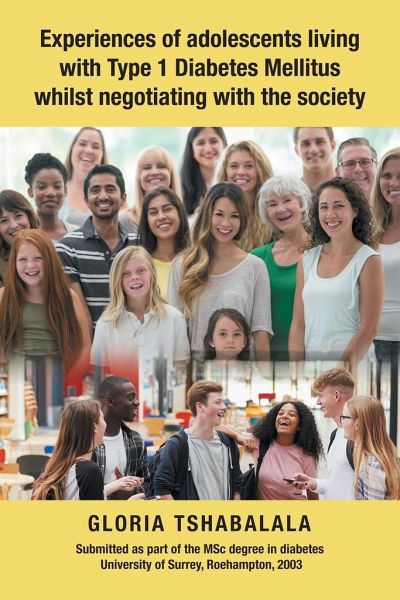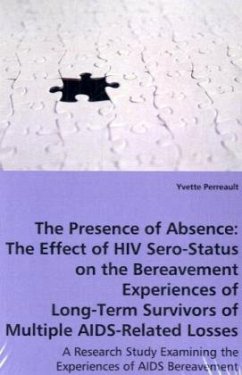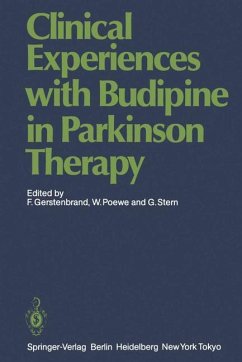
Experiences of Adolescents Living with Type 1 Diabetes Mellitus Whilst Negotiating with the Society
Versandkostenfrei!
Versandfertig in 1-2 Wochen
14,99 €
inkl. MwSt.
Weitere Ausgaben:

PAYBACK Punkte
7 °P sammeln!
This qualitative study aimed to explore the experiences of adolescents living with type 1 diabetes mellitus (T1DM) and how society perceives them. T1DM is a chronic condition characterized by abnormally high blood glucose due to lack of insulin production by the cells in the pancreas. The treatment is insulin injections or infusions, as there is no medical cure at the moment. More specifically, the study examined how the adolescents manage the illness and cope with the perception and stigmatization related to this condition. Despite the existence of research into living and coping with some ch...
This qualitative study aimed to explore the experiences of adolescents living with type 1 diabetes mellitus (T1DM) and how society perceives them. T1DM is a chronic condition characterized by abnormally high blood glucose due to lack of insulin production by the cells in the pancreas. The treatment is insulin injections or infusions, as there is no medical cure at the moment. More specifically, the study examined how the adolescents manage the illness and cope with the perception and stigmatization related to this condition. Despite the existence of research into living and coping with some chronic conditions, research on TIDM, particularly using qualitative methodologies, is limited. A review in literature also indicated insufficient studies on stigma associated with chronic conditions that have no overt symptoms. In-depth interviews were conducted with nine diverse volunteers after obtaining informed consent (five females and four males). The volunteers were aged between sixteen to nineteen years with a duration of diabetes at a minimum of two years since diagnosis. An analysis of interview results was based on ground theory methodology whereby many categories were generated. From these two core categories, which are assimilation and accommodation, stigmatization emerged. These represent the adolescents' attempt to cope with the experience of living with TIDM and the views of society on this condition with no visible physical abnormalities. Parts of the implications of these findings confirm that medical model management needs to consider psychosocial aspects in order to facilitate adjustment to the chronic condition. Further qualitative research using a bigger sample over a longer period was recommended. The DAWN study (attitudes, wishes, and needs in diabetes) has since been carried out.














